RESEARCH & DEVELOPMENT
Before market release, every RAR wheel undergoes a series of laboratory and road tests to evaluate its mechanical limits, ultimately enabling us to enhance its performance.
Our in-house designed calibration, testing, and breaking rigs allow in-depth analysis of mechanical characteristics, ensuring flawless reliability and elite performance, far surpassing the requirements of the NF EN 14781 standard.
Collected data fuels a continuous improvement cycle, with each wheel iteration integrating advances in materials, geometric design, and assembly techniques. These advanced studies of wheel behavior ensure alignment with our goal: to craft high-performance, reliable, and precise wheels for every discipline.
“Pushing the boundaries of our processes.”
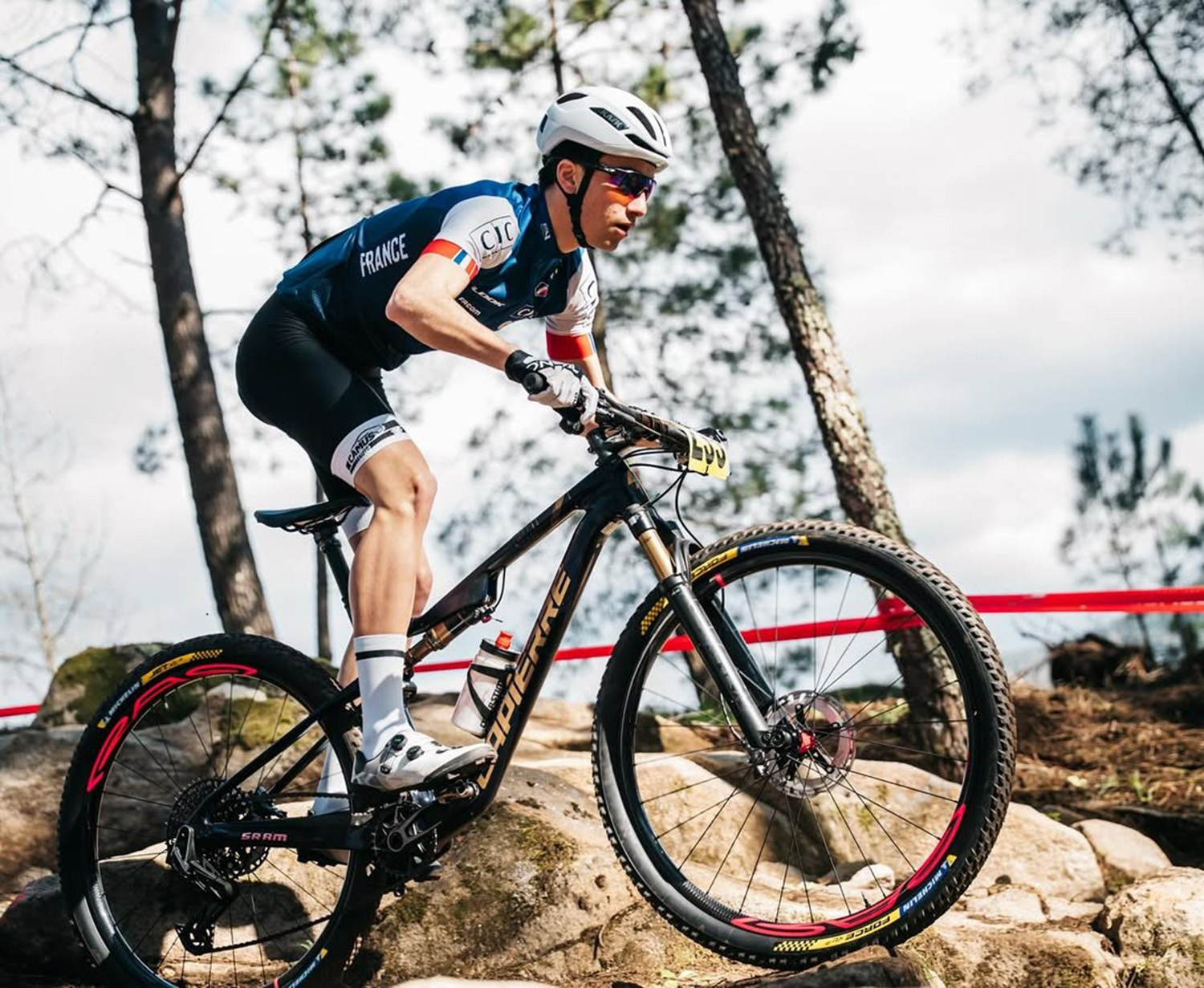
Our testing team, composed of diverse cyclists—professional racers, FFC or Ufolep competitors, cyclosportives, and triathletes—provides comprehensive feedback, covering a wide range of uses and conditions.
Year-round, their detailed analyses guide our refinements, whether optimizing stiffness for sprints, aerodynamics for time trials, or robustness for off-road courses.
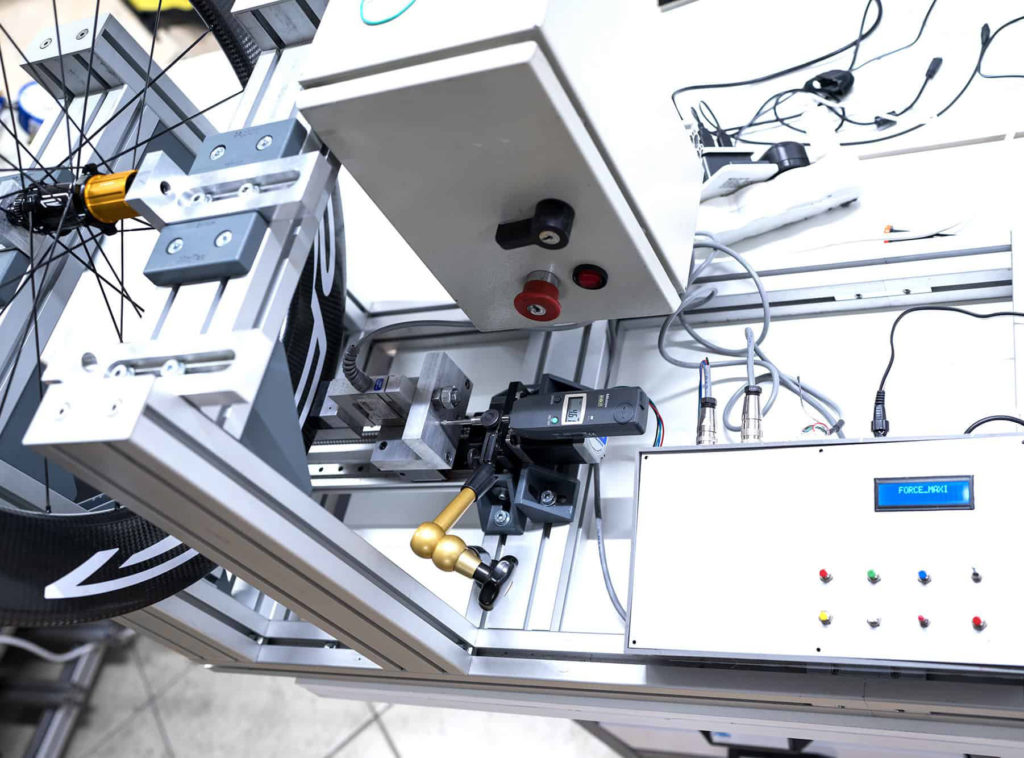
LATERAL DEFORMATION
Lateral stiffness testing is central to our validation process. By subjecting each wheel to controlled deformations, we measure stresses across different rim zones.
These data are critical for optimizing:
- Power transfer during accelerations: Ensuring maximum efficiency, vital for sprints or climbs.
- Adaptation to rider profile: Guaranteeing optimal performance regardless of weight or pedaling style.
- Spoke durability: Ensuring exceptional longevity, even under repeated stresses.
These analyses allow us to tailor each wheel to the rider’s profile. To correct deformations and optimize performance, we adjust:
- Spoking: Modifying the number, cross-section, and angle of spokes.
- Rim: Optimizing its shape, material, and layup plan.
BEARING RESISTANCE TEST
Rotational fluidity is key to maximizing pedaling efficiency: a stiff, lightweight wheel loses its advantage if bearings dissipate the rider’s energy.
Using high-precision torque meters, we evaluate hub friction and translate these data into absorbed power.
These rigorous tests enable us to:
- Select optimal bearings for each hub model, ensuring perfect mounting tolerances.
- Optimize preload for smooth, sustained rotation, maximizing efficiency when mounted on the bike.
- Enhance long-term bearing reliability, even under high stresses, for a consistent, effortless pedaling experience.
These adjustments ensure every watt produced by the rider is fully utilized, delivering ideal responsiveness and efficiency in competition or demanding rides.
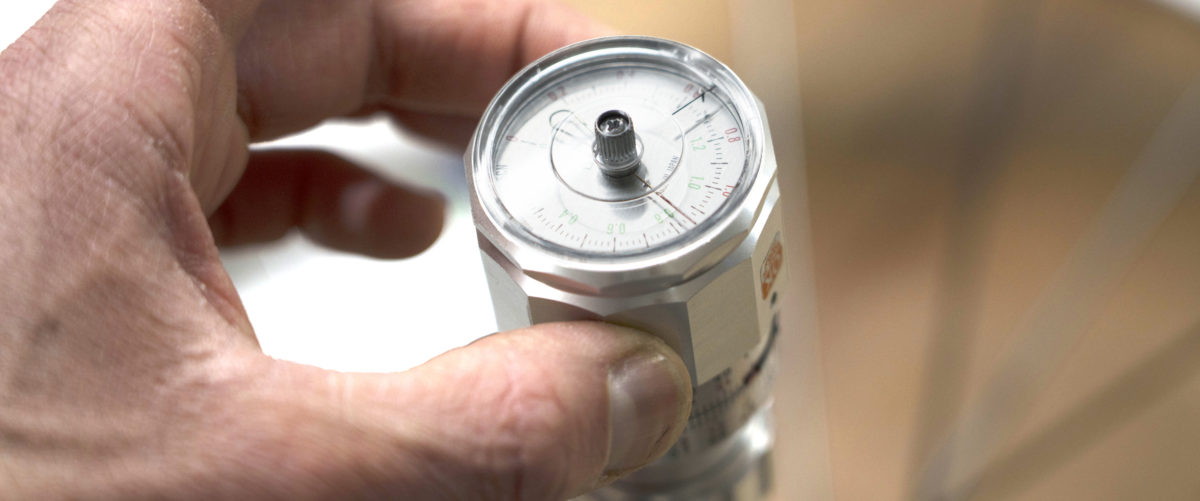
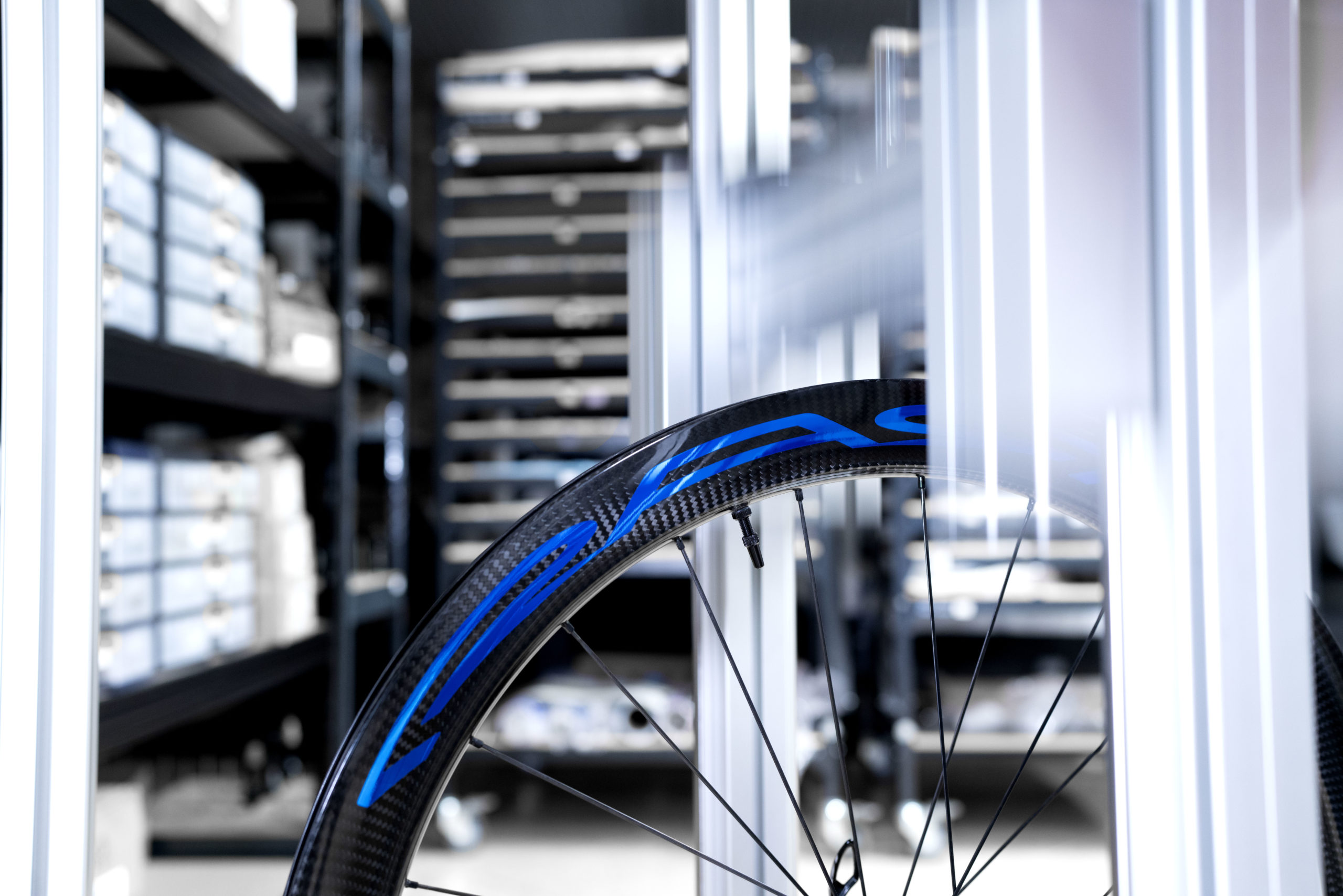
IMPACT RESISTANCE TESTS
Wheel durability is as crucial as performance.
To ensure unyielding robustness, we subject each model to impact resistance tests on a guillotine-style crash test rig, simulating severe shocks like those from potholes. These rigorous tests assess assembly quality and the wheel’s ability to withstand extreme impacts, ensuring optimal rider safety.
Our wheels meet stringent UCI standards, with models like RAR EXALT, RAR EVEN 40, and RAR EVEN 50 officially validated for high-level peloton competitions.
While the UCI requires resistance to a 40-joule impact, we exceed this, testing our wheels at energy levels up to 60, 80, or even 100 joules for some models.
These elevated internal standards guarantee exceptional reliability, even in the most demanding conditions, offering cyclists absolute confidence across all terrains.


 0
0